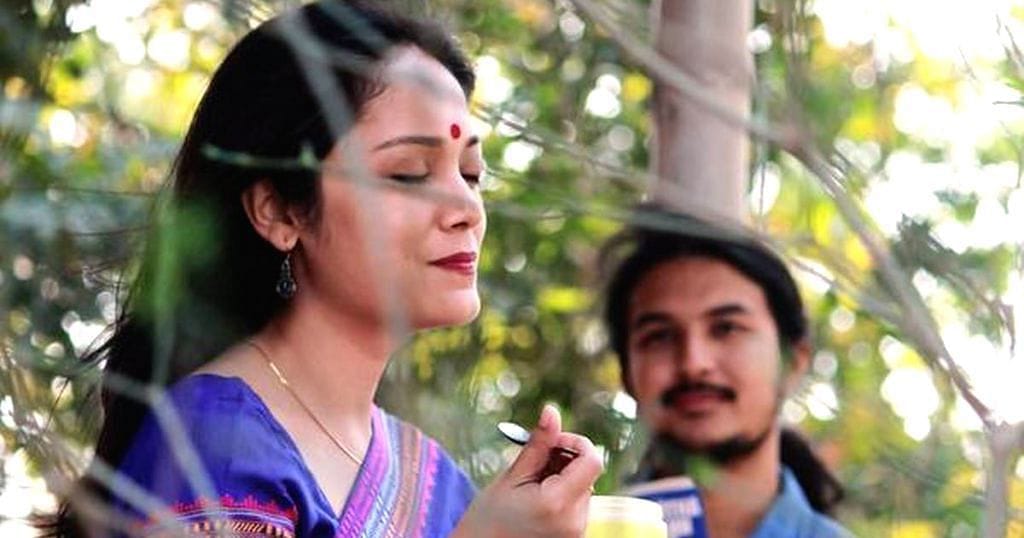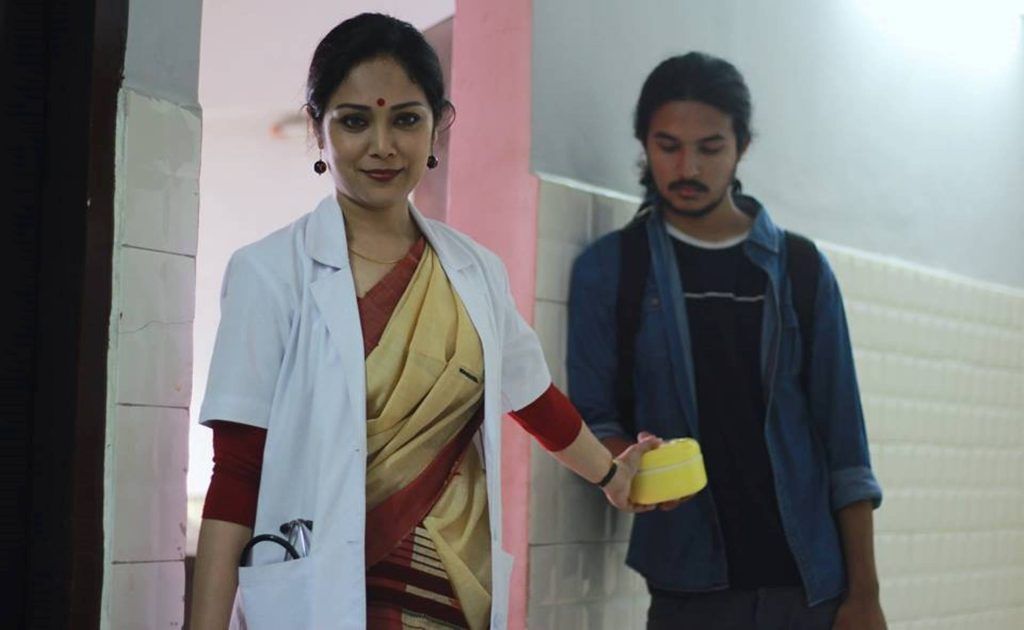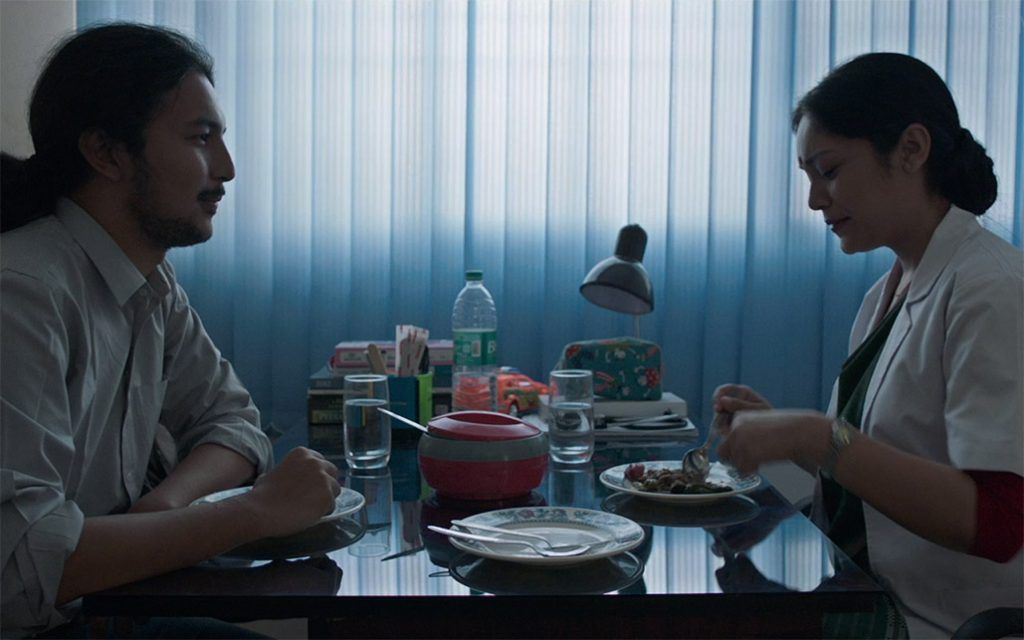Aamis, directed by Bhaskar Hazarika, is a gripping psychological thriller that delves into the unsettling depths of human desire, intimacy, and societal norms. Set in contemporary Assam, the film weaves a haunting narrative around Nirmali, a middle-aged pediatrician, and Sumon, a passionate Ph.D. student researching the meat-eating habits of people in northeastern India. Their seemingly innocent friendship, rooted in a shared love for food, spirals into a dark and transgressive exploration of obsession, ultimately challenging societal perceptions of love and intimacy.

At the heart of Aamis lies the unconventional bond that develops between Nirmali and Sumon. Their paths cross when Nirmali is called to treat Sumon’s friend for indigestion, leading to a burgeoning acquaintance fueled by their mutual appreciation for culinary delights. Sumon’s passion for cooking various meat dishes serves as the backdrop for their relationship, providing a sense of intimacy that Nirmali finds lacking in her unsatisfying marriage.
As their friendship deepens, so does Sumon’s obsession with Nirmali, which begins to detract from his academic pursuits. Nirmali, meanwhile, struggles with her own marital dissatisfaction, seeking solace in her time spent with Sumon. This dynamic sets the stage for a deeply unsettling exploration of how unfulfilled emotional needs can drive individuals toward unhealthy dependencies. Food becomes more than mere sustenance; it morphs into a conduit for their suppressed desires. As the narrative unfolds, the film takes a chilling turn. Sumon’s obsession leads him to concoct a horrifying plan: he approaches his friend Elias, a veterinarian, with the intention of cutting out a piece of his flesh to cook and serve to Nirmali, believing this act will solidify their bond. When Nirmali unknowingly consumes the dish, she experiences an unparalleled gastronomic delight, leading to a disturbing craving for human flesh.
Their relationship evolves into a grotesque ritual of mutual consumption, with both characters feeding each other their flesh. The act of eating transcends the physical, representing their emotional entanglement and the depths of their shared obsession. As Nirmali’s addiction grows, Sumon descends further into madness, culminating in the murder of a rickshaw driver to satiate her cravings. This act of violence forces the couple into the public eye as they are caught and arrested, sparking a sensational media frenzy.

In Aamis, food is a powerful metaphor for connection and intimacy. The rituals of preparing and sharing exotic meats symbolize the characters’ desire for closeness and understanding, which societal norms often restrict. As Nirmali and Sumon navigate their relationship, food becomes an eroticized medium through which they express their innermost desires. This exploration challenges the audience to confront their perceptions of consumption, both literally and metaphorically, and raises unsettling questions about the nature of intimacy and love. The film also engages with the tension between traditional cultural values and modern individual desires. Sumon’s academic pursuits reflect a deep reverence for traditional meat-eating practices, while Nirmali’s life embodies the constraints of societal expectations as a married woman. This juxtaposition highlights the struggle between preserving cultural identity and embracing personal freedom, illustrating the complexities of modern relationships in a rapidly changing society.
Both Nirmali and Sumon are portrayed as emotionally isolated figures seeking solace in one another. Nirmali’s loveless marriage leaves her yearning for deeper connections, while Sumon grapples with his unconventional passion for meat research. Their shared experiences around food temporarily fill the emotional voids in their lives, creating a fleeting sense of belonging. Hazarika skillfully depicts how loneliness and the fear of societal judgment can push individuals toward unexpected—and often dangerous—relationships.At its core, Aamis is a haunting exploration of forbidden love that transcends conventional boundaries. Hazarika masterfully employs food as a vehicle for intimacy, delving into the psychological complexities of human desire and the darker sides of obsession. As Nirmali and Sumon navigate their unorthodox relationship, they compel both themselves and the audience to confront unsettling moral questions about love, consumption, and the nature of connection.

In its provocative storytelling and richly layered themes, Aamis stands as a chilling reminder of the lengths individuals will go to fulfill their emotional needs, challenging viewers to reflect on the very essence of intimacy and the boundaries that society imposes. The film is a testament to Hazarika’s ability to blend culinary artistry with psychological horror, leaving audiences both enthralled and disturbed by the unsettling journey of its characters











